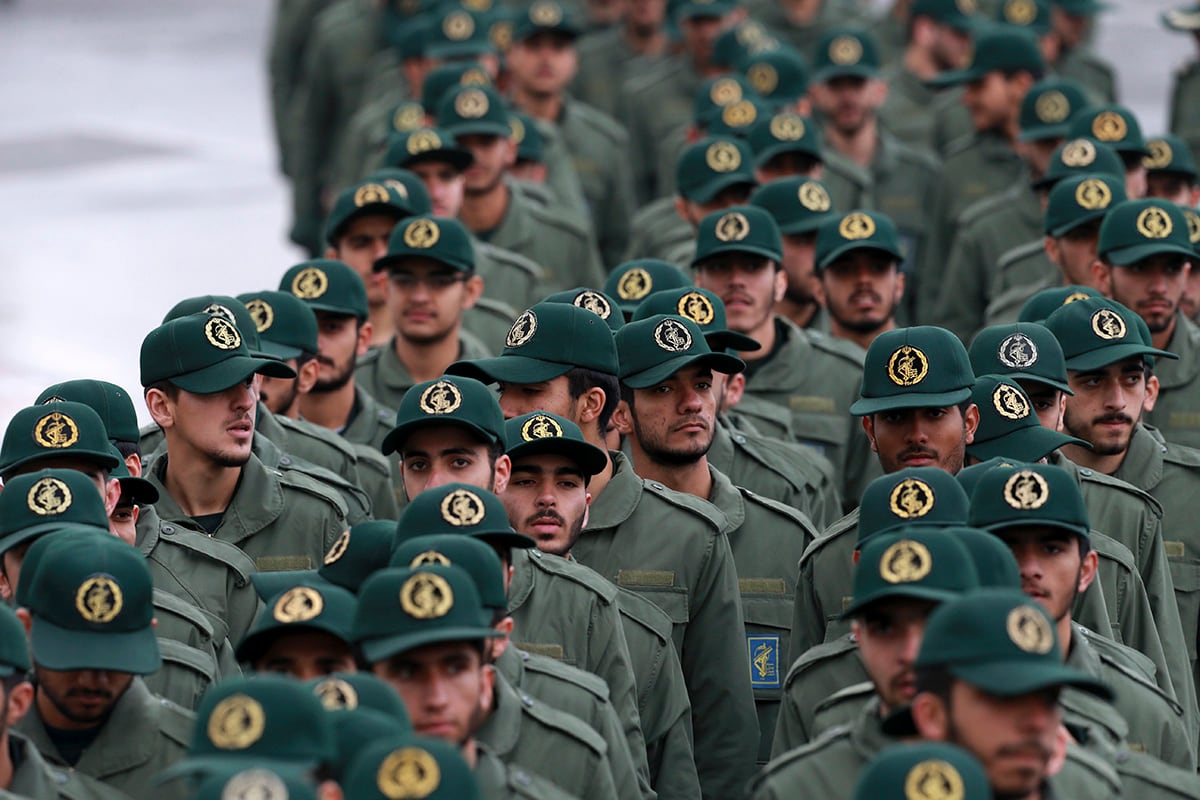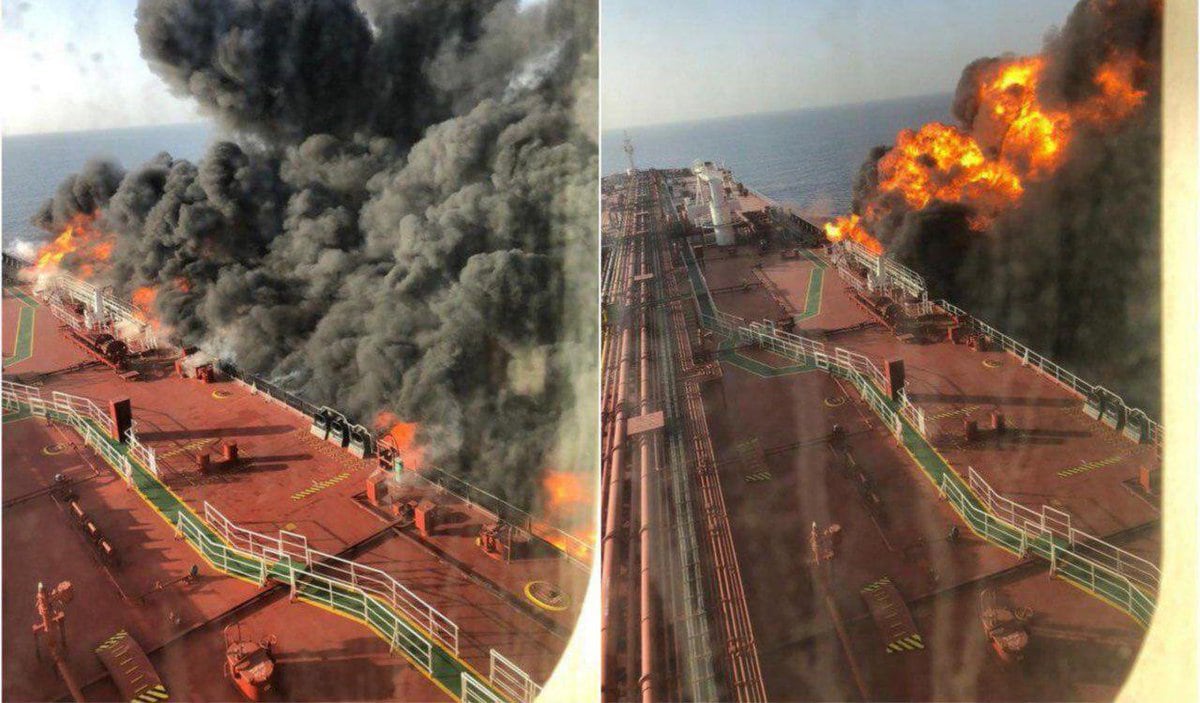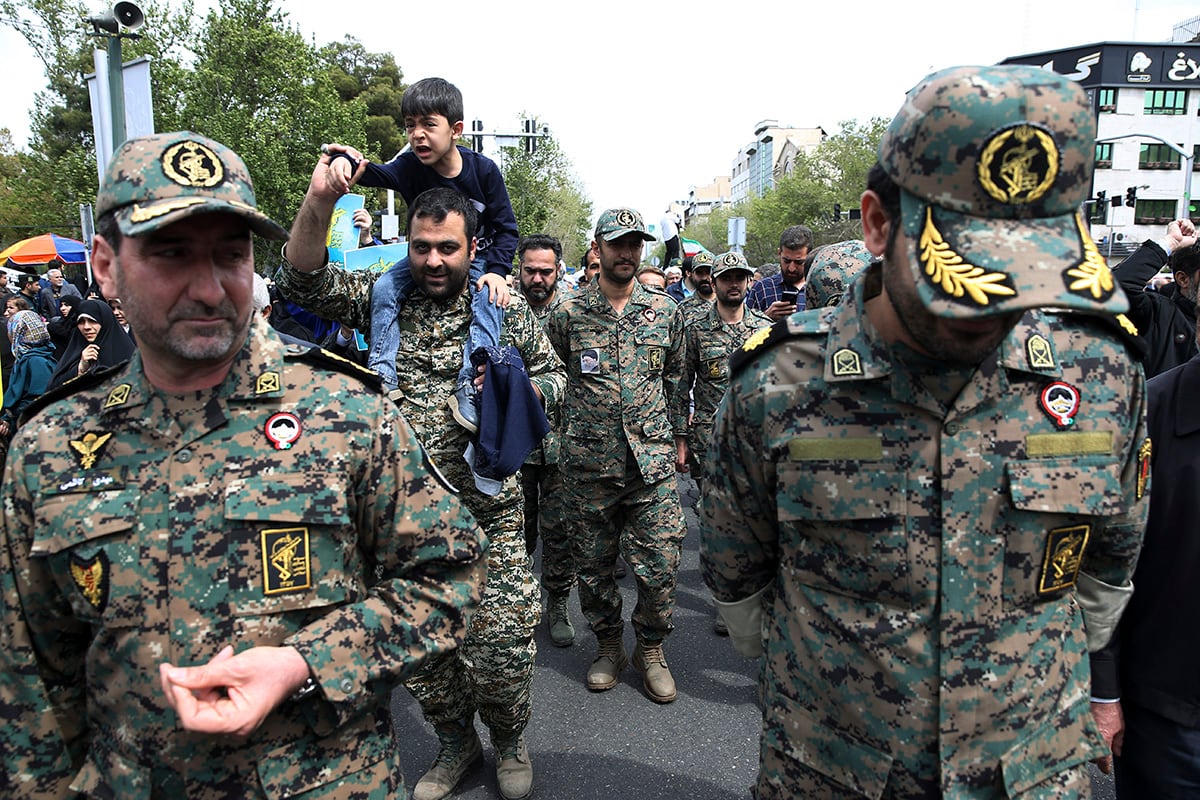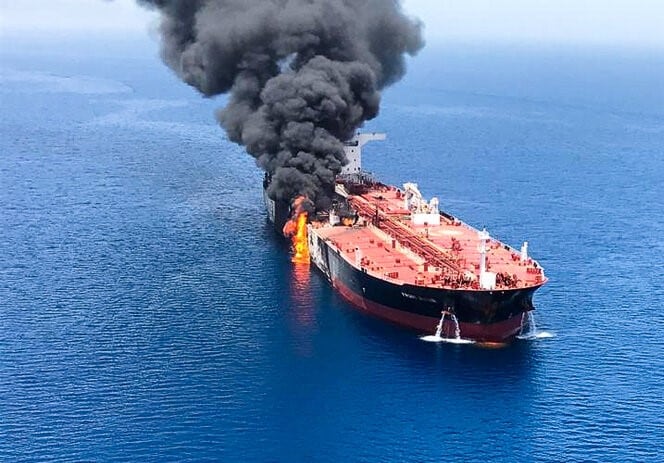In a brief press conference Thursday, Secretary of State Mike Pompeo expressed no doubt about who attacked two tankers in the Gulf of Oman, saying Iran was “responsible for the attacks.”
He did not, however, immediately offer any proof of the intelligence behind that assessment.
The attack certainly bears the hallmark and capabilities of previous aggressive actions undertaken by Iran and its paramilitary cohorts in the Persian Gulf.
But questions abound over who actually stands to benefit most from an attack in a region beset by violence and convoluted proxy conflicts raged between and Iran and Saudi Arabia and its allies.
Was the attack carried out by Iran, or other Gulf States seeking to sow conflict ― or did the Islamic Revolutionary Guard Corps operate outside of Tehran’s directives to further its own agenda?
CNN reported, citing a U.S. defense official, that the crew of the Arleigh Burke-class guided-missile Bainbridge reported seeing an unexploded limpet mine on the side of one of the tankers involved in Thursday’s attack in the Gulf of Oman.
A limpet mine was believed to be the cause of an attack on four tankers in May off the coast of the United Arab Emirates, which the U.S. pinned on Iran, according to the BBC.
No state or group has claimed responsibility for the attacks on the tankers, one of which was carrying oil to Japan, whose Prime Minister Shinzo Abe was on a diplomatic mission in Iran to help ease tensions in the region. The attacks occurred in the Gulf of Oman.
Javid Zarif, Iran’s foreign minister, tweeted that “suspicious doesn’t begin to describe what likely transpired this morning.”
And both Iran and the U.S. claimed to have rescued sailors of the damaged tankers.
The U.S. Navy put out a statement saying it had received two separate distress signals and that the Bainbridge “rendered assistance.”
RELATED

While Iran is often seen as instigator of conflict in the region — whether through harassing U.S. naval vessels at sea with fast boats or arming Houthi rebels in Yemen with anti-ship missiles — there are a number of groups and countries that have motives for orchestrating Thursday’s attacks.
“I would not write off any possibility until there is a lot more information,” a former chief of staff with U.S. Central Command told Military Times on condition of anonymity.
The former CENTCOM official spoke to Military Times prior to Pompeo’s press conference.
“It could be anything from some other state that has an interest in instigating a conflict with Iran and the U.S. or the other Gulf States, you know, doing an act that could logically be attributed to Iran," the former CENTCOM official said.
It’s possible the attacks were carried out by the IRGC, whose actions have in the past been unhelpful in the Persian Gulf; or the Saudis, who have been “aggressively pushing the United States to take military action against Iran," among others, Trita Parsi, a professor at Georgetown University, told Military Times.
Parsi is also the author of “Losing an Enemy: Obama, Iran, and the Triumph of Diplomacy.”
“We are in a scenario in which there are a large set of actors whose motives and whose conduct has been of such nature that one should be very careful to take their words at face value," Parsi said.
Iran is aware it is overmatched in the region by the might of the U.S. military, so its defense is organized primarily through asymmetry and deterrence to raise the cost of conflict. That often makes proving Iran culpable for attacks in the region difficult.
The IRGC is structured and designed to purposely make such kinds of attacks difficult to trace, the former CENTCOM official said.
“I suspect that our intel community is working pretty hard to figure it out," he said.

While it seems counterintuitive that Iran would sabotage its own diplomacy by striking a ship carrying oil bound for Japan while that country’s prime minister was on a diplomatic visit to Tehran — such an attack could prove advantageous to different political actors within Iran.
There are rifts between the IRGC and President Hassan Rouhani’s administration over economic reforms that have sought to strip the military group’s economic power in the country, and also fallout following America’s abandonment of the nuclear accord, known as Joint Comprehensive Plan of Action.
The IRGC has been known to act in its own interest and “operate outside what appears to be Tehran’s policy," and there is a history in Iran hardliners trying trying “sabotage diplomacy,” Parsi said. Though, Parsi added, that really hasn’t been the norm for the IRGC for several years.
Radio Farda reported that senior IRGC commander Amir Ali Hajizadeh criticized the Rouhani administration in January for “preventing the country’s progress" and described the administration as “managers who are under Western influence.”
But the attack on the tankers by the IRGC would likely embarrass Iran’s Supreme Leader Ayatollah Ali Khamenei and not Rouhani, Parsi explained.
Iran and the IRGC have also been known to carry out aggressive actions in the Persian Gulf to sabotage sanctions levied against the country by spiking oil prices, Parsi said.
RELATED

The Associated Press reported that following Thursday’s attack Benchmark Brent crude increased by 4 percent to more than $62 a barrel.
And the IRGC has a big stake in the oil industry, as the military organization has gobbled up a large section of Iran’s economy and businesses following economic reforms instituted during Iranian President Mahmoud Ahmadinejad’s term.
In June, the U.S. Treasury Department announced sanctions targeting Iranian petro company Persian Gulf Petrochemical Industries Company for its connections to Khatam al-Anbiya, which the Treasury Department described as “the economic arm of the IRGC.”
“By targeting this network we intend to deny funding to key elements of Iran’s petrochemical sector that provide support to the IRGC,” said Treasury Secretary Steven T. Mnuchin said in a release. “This action is a warning that we will continue to target holding groups and companies in the petrochemical sector and elsewhere that provide financial lifelines to the IRGC.”
“The IRGC systemically infiltrates critical sectors of the Iranian economy to enrich their coffers, while engaging in a host of other malign activities,” said Under Secretary for Terrorism and Financial Intelligence Sigal Mandelker in the release.
But Parsi questioned whether a 4 percent increase in oil prices is really worth the risk.
RELATED

“The net effect of this, which is to complicate diplomacy, and to complicate any conflict resolution, clearly lies in the interests of those who have been pushing for war,” Parsi said.
It’s still unknown by what means the ships were attacked.
The former CENTCOM official said it could have been a mine or something that was put on the vessels at the last port and triggered later.
The Associated Press contributed to this story.
Shawn Snow is the senior reporter for Marine Corps Times and a Marine Corps veteran.



